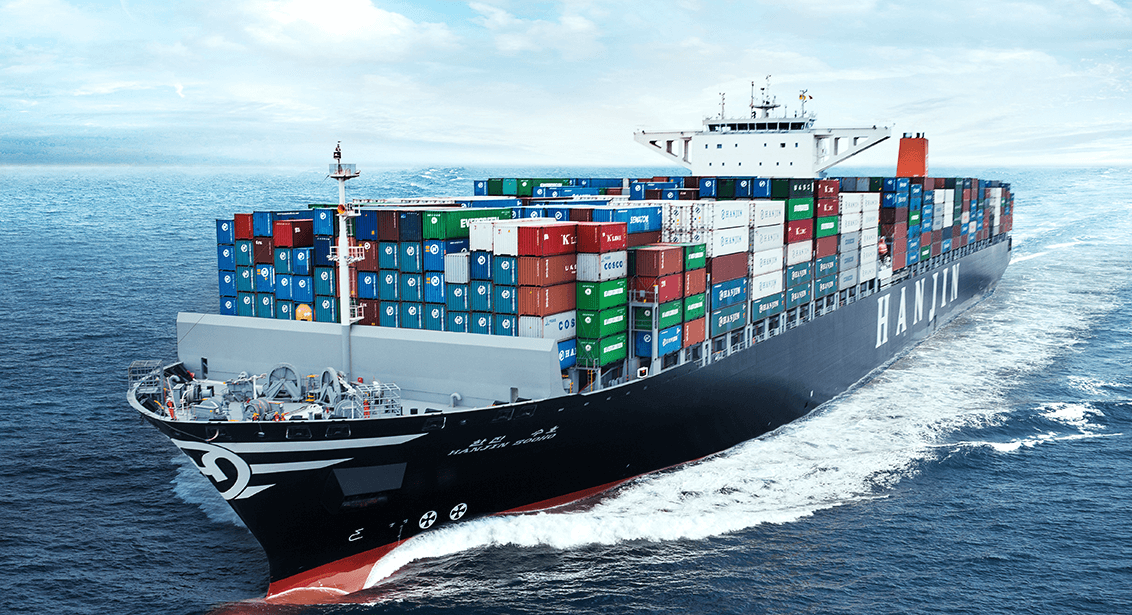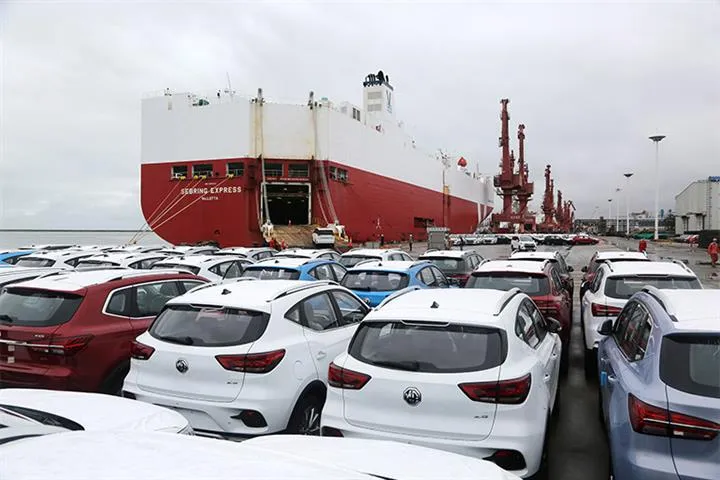Are you curious about how long freight from China to Sweden typically takes? Understanding shipping durations is crucial for businesses and individuals looking to navigate international trade effectively.
In this comprehensive guide, we’ll explore the intricacies of sea and air freight, examine factors influencing shipping times, and offer tips to reduce delays. Whether you’re importing goods or planning a shipment, this article will equip you with valuable insights to streamline your logistics and make informed decisions.

Overview of China-Sweden Trade Relations
Current Trade Volume and Trends
The trade relationship between China and Sweden has been steadily growing, reflecting the deepening economic ties between the two countries. As of 2023, the bilateral trade volume has reached approximately $14 billion, with China being Sweden’s largest trading partner in Asia. This growth can be attributed to Sweden’s strong technology sector and China’s manufacturing capabilities. The dynamics of this trade are characterized by increasing exports from China to Sweden, particularly in electronics, machinery, and textiles, while Sweden exports machinery, vehicles, and pharmaceuticals to China. According to the Swedish Customs, imports from China constituted about 18% of Sweden’s total imports, indicating a robust reliance on Chinese goods.
Key Import and Export Products
The primary products exchanged between China and Sweden highlight the diverse nature of their trade. China predominantly exports:
- Electronics (including smartphones and computers)
- Machinery (such as manufacturing equipment)
- Textiles (clothing and accessories)
- Furniture
Conversely, Sweden exports a significant amount of:
- Machinery (particularly industrial machines)
- Medical equipment and pharmaceuticals
- Automotive parts and vehicles
- Wood products (such as paper and timber)
The continuous evolution of these products is influenced by market demands, technological advancements, and changes in consumer preferences in both countries.
Sea Freight Shipping Times from China to Sweden
Average Transit Times for Sea Freight
When considering logistics for importing goods from China to Sweden, sea freight serves as a cost-effective solution for bulk shipments. The average transit time for sea freight from major ports in China (like Shanghai, Shenzhen, or Ningbo) to key ports in Sweden (such as Gothenburg or Stockholm) typically ranges from 25 to 40 days. The exact duration depends on the chosen shipping route and carrier efficiency.
Here is an overview of average transit times from selected Chinese ports to Swedish ports:
| Chinese Port | Swedish Port | Average Transit Time |
|---|---|---|
| Shanghai | Gothenburg | 30 days |
| Shenzhen | Stockholm | 28 days |
| Ningbo | Malmö | 35 days |
Factors Influencing Sea Freight Duration
Various factors can influence the duration of sea freight shipments from China to Sweden:
Distance and Route Selection: The distance between ports and the chosen shipping route can significantly affect delivery times. Direct routes typically offer shorter transit periods.
Weather Conditions: Adverse weather can delay shipping schedules. For instance, typhoons or winter storms can lead to rerouted ships or slower travel times.
Port Congestion: Busy ports may experience delays due to congestion, impacting loading and unloading times.
Customs and Regulatory Compliance: The efficiency of customs clearance procedures at both the departure and arrival ports can affect overall shipping time. Delays in documentation or inspections can prolong the process.
Choice of Freight Forwarder: Partnering with a reliable freight forwarder can minimize delays. At Dantful International Logistics, we specialize in providing efficient ocean freight services, ensuring smooth transit from China to Sweden with minimal disruptions.
Understanding these factors is essential for businesses looking to optimize their supply chains and predict shipping times accurately. By factoring in these elements, importers can better plan their logistics and inventory management strategies to meet market demands efficiently.
Air Freight Shipping Times from China to Sweden
Average Transit Times for Air Freight
When importing goods from China to Sweden, air freight offers a significantly faster shipping option compared to sea freight. The average transit time for air freight between major airports in China, such as Shanghai Pudong International Airport (PVG) or Beijing Capital International Airport (PEK), and Stockholm Arlanda Airport (ARN) typically ranges from 7 to 14 days. This time frame accounts for the time spent in transit, as well as the logistics involved, including loading and unloading, customs clearance, and delivery to the final destination.
Transit times can vary based on several factors, including the specific airport of origin, destination airport, and the airline used. For example, direct flights may provide quicker service, while routes with layovers may extend delivery times. Below is a table summarizing average air freight transit times from key Chinese airports to Sweden:
| Departure Airport (China) | Destination Airport (Sweden) | Average Transit Time (Days) |
|---|---|---|
| Shanghai Pudong International Airport (PVG) | Stockholm Arlanda Airport (ARN) | 7 – 10 |
| Beijing Capital International Airport (PEK) | Gothenburg Landvetter Airport (GOT) | 8 – 12 |
| Guangzhou Baiyun International Airport (CAN) | Stockholm Arlanda Airport (ARN) | 10 – 14 |
Advantages of Air Freight over Sea Freight
Air freight presents several advantages over sea freight, making it an appealing choice for urgent shipments. Here are some of the primary benefits:
Speed: The most significant advantage of air freight is its speed. As mentioned, shipments can arrive in Sweden within one to two weeks, while sea freight may take several weeks to months.
Reliability: Airlines generally adhere to strict schedules, and delayed flights are less common than delayed shipping schedules in sea freight. This reliability is crucial for businesses needing timely deliveries.
Lower Risk of Damage: Transporting goods by air usually involves less handling compared to sea freight, which reduces the risk of damage to the cargo. This is particularly important for fragile or high-value items.
Access to Remote Areas: Air freight can reach remote or less accessible locations that may be challenging for sea freight, thereby expanding delivery options.
Inventory Flexibility: Businesses can maintain leaner inventory levels due to the rapid shipping capabilities of air freight, leading to reduced warehousing costs.
However, it is essential to consider that while air freight is faster, it is also generally more expensive than sea freight. Businesses must balance their need for speed against their budgetary constraints when deciding on a shipping method.
Read More:
- Shipping From China To Netherlands
- Shipping From China To Spain
- Shipping From China To Germany
- Shipping From China To France
- Shipping From China to Italy
- Shipping From China To Poland
- Shipping From China to United Kingdom
Additional Considerations Affecting Shipping Time
Customs Clearance Processes
The customs clearance process can significantly affect shipping times, regardless of whether the goods are transported by air or sea. In Sweden, all imports must go through the Swedish Customs (Tullverket), which ensures compliance with various regulations. Factors that can lead to delays during customs clearance include incomplete documentation, payment of duties and taxes, and the need for additional inspections. Therefore, partnering with a professional freight forwarder like Dantful International Logistics can help streamline this process, ensuring that all necessary documentation is accurate and submitted on time, thus reducing potential delays.
Seasonal Variations in Shipping Times
Seasonal fluctuations can also influence shipping times from China to Sweden. Peak seasons, such as the Chinese New Year and major shopping events like Black Friday, can lead to increased demand for air freight services. This heightened demand may result in longer lead times as airlines become saturated with cargo. Conversely, off-peak seasons may offer more expedited services and reduced costs. Therefore, businesses should plan their shipments strategically to avoid potential delays during peak periods.
Impact of Global Events on Shipping
Global events, such as the COVID-19 pandemic or geopolitical tensions, can disrupt air freight operations and logistics. These events can lead to flight cancellations, changes in routing, and increased security procedures, all of which can affect shipping times. Staying informed about current global events and their potential impact on logistics is crucial for businesses relying on timely delivery. Engaging a reliable freight forwarder like Dantful International Logistics can help navigate these challenges, providing real-time updates and alternative solutions to minimize disruptions.
By understanding the nuances of air freight shipping times, customs processes, seasonal variations, and global impacts, businesses can make informed decisions to optimize their logistics strategies for imports from China to Sweden.
Tips for Reducing Shipping Time
Choosing the Right Freight Forwarder
Selecting an experienced freight forwarder is crucial for optimizing shipping time from China to Sweden. A proficient forwarder like Dantful International Logistics not only streamlines the logistics process but also enhances communication and coordination. Our company specializes in a wide range of services, including ocean freight, air freight, customs clearance, and door-to-door delivery, all tailored to minimize transit times. Researching and comparing various freight forwarding companies can provide insights into their track records, service offerings, and customer reviews—vital factors that can significantly affect shipping duration.
Proper Documentation and Compliance
Ensuring that all documentation is accurate and compliant with Swedish import regulations can prevent delays during customs clearance. Common documents required for shipping goods from China include the commercial invoice, packing list, bill of lading, and customs declarations. Incomplete or incorrect documentation can lead to hold-ups at customs, prolonging the overall shipping time. Working with a knowledgeable freight forwarder like Dantful can help you navigate these requirements efficiently, reducing the risk of any compliance-related delays.
Strategic Planning for Delivery Schedules
Effective planning of delivery schedules can significantly reduce shipping times. This involves understanding the best times to ship based on seasonal demand and the availability of transportation options. By strategically planning shipments, you can avoid peak seasons that often lead to congestion and delays. Additionally, consider coordinating shipments with suppliers in China to ensure timely dispatch. Dantful’s expertise in logistics can assist you in developing a shipping timeline that aligns with your business needs, ensuring that goods arrive in Sweden when required.
Understanding Shipping Costs and Their Impact on Time
Cost vs. Speed: Making the Right Choice
When choosing between different shipping methods (e.g., sea freight vs. air freight), it is vital to weigh the trade-off between cost and speed. Air freight is generally faster, with average transit times ranging from 3 to 7 days, while sea freight can take anywhere from 20 to 40 days, depending on the specific routes and ports. However, air freight is often significantly more expensive. Thus, understanding your budget constraints and urgency will help you make an informed decision that balances both cost and delivery expectations.
Budgeting for Faster Shipping Options
If speed is a priority, budgeting for expedited shipping options can be beneficial. This may mean opting for air freight or premium services within sea freight that offer faster transit times. It’s essential to account for these costs in your overall logistics budget. At Dantful International Logistics, we provide transparent pricing and various options to suit different shipping needs, ensuring that you can choose an option that aligns with both your budget and your timeline.
Conclusion
In conclusion, reducing shipping time from China to Sweden requires careful consideration of various factors, including the selection of a reliable freight forwarder, meticulous documentation, and strategic planning of delivery schedules. By understanding the balance between shipping costs and speed, importers can make informed decisions that meet their logistical needs. Partnering with a professional logistics provider like Dantful International Logistics not only enhances efficiency but also provides peace of mind, knowing that your shipments are in expert hands.

Young Chiu is a seasoned logistics expert with over 15 years of experience in international freight forwarding and supply chain management. As CEO of Dantful International Logistics, Young is dedicated to providing valuable insights and practical advice to businesses navigating the complexities of global shipping.





















 Afrikaans
Afrikaans Shqip
Shqip አማርኛ
አማርኛ العربية
العربية Հայերեն
Հայերեն Azərbaycan dili
Azərbaycan dili Euskara
Euskara Беларуская мова
Беларуская мова বাংলা
বাংলা Bosanski
Bosanski Български
Български Català
Català Cebuano
Cebuano Chichewa
Chichewa 简体中文
简体中文 繁體中文
繁體中文 Corsu
Corsu Hrvatski
Hrvatski Čeština
Čeština Dansk
Dansk Nederlands
Nederlands English
English Esperanto
Esperanto Eesti
Eesti Filipino
Filipino Suomi
Suomi Français
Français Galego
Galego ქართული
ქართული Deutsch
Deutsch Ελληνικά
Ελληνικά Kreyol ayisyen
Kreyol ayisyen Harshen Hausa
Harshen Hausa Ōlelo Hawaiʻi
Ōlelo Hawaiʻi עִבְרִית
עִבְרִית हिन्दी
हिन्दी Hmong
Hmong Magyar
Magyar Íslenska
Íslenska Igbo
Igbo Bahasa Indonesia
Bahasa Indonesia Gaeilge
Gaeilge Italiano
Italiano 日本語
日本語 Basa Jawa
Basa Jawa ಕನ್ನಡ
ಕನ್ನಡ Қазақ тілі
Қазақ тілі ភាសាខ្មែរ
ភាសាខ្មែរ 한국어
한국어 كوردی
كوردی Кыргызча
Кыргызча ພາສາລາວ
ພາສາລາວ Latin
Latin Latviešu valoda
Latviešu valoda Lietuvių kalba
Lietuvių kalba Lëtzebuergesch
Lëtzebuergesch Македонски јазик
Македонски јазик Malagasy
Malagasy Bahasa Melayu
Bahasa Melayu മലയാളം
മലയാളം Maltese
Maltese Te Reo Māori
Te Reo Māori मराठी
मराठी Монгол
Монгол ဗမာစာ
ဗမာစာ नेपाली
नेपाली Norsk bokmål
Norsk bokmål پښتو
پښتو فارسی
فارسی Polski
Polski Português
Português ਪੰਜਾਬੀ
ਪੰਜਾਬੀ Română
Română Русский
Русский Samoan
Samoan Gàidhlig
Gàidhlig Српски језик
Српски језик Sesotho
Sesotho Shona
Shona سنڌي
سنڌي සිංහල
සිංහල Slovenčina
Slovenčina Slovenščina
Slovenščina Afsoomaali
Afsoomaali Español
Español Basa Sunda
Basa Sunda Kiswahili
Kiswahili Svenska
Svenska Тоҷикӣ
Тоҷикӣ தமிழ்
தமிழ் తెలుగు
తెలుగు ไทย
ไทย Türkçe
Türkçe Українська
Українська اردو
اردو O‘zbekcha
O‘zbekcha Tiếng Việt
Tiếng Việt Cymraeg
Cymraeg יידיש
יידיש Yorùbá
Yorùbá Zulu
Zulu